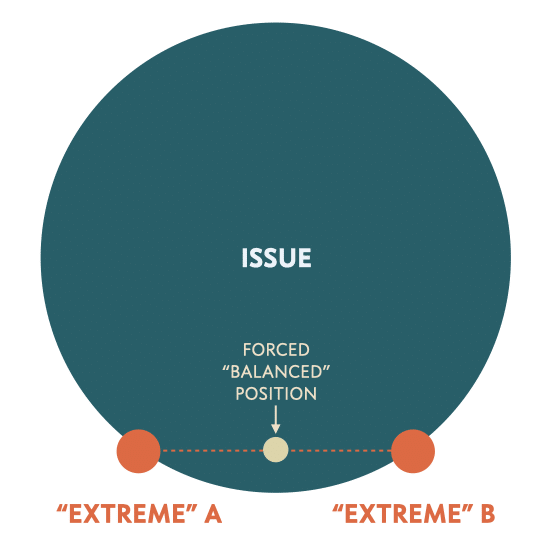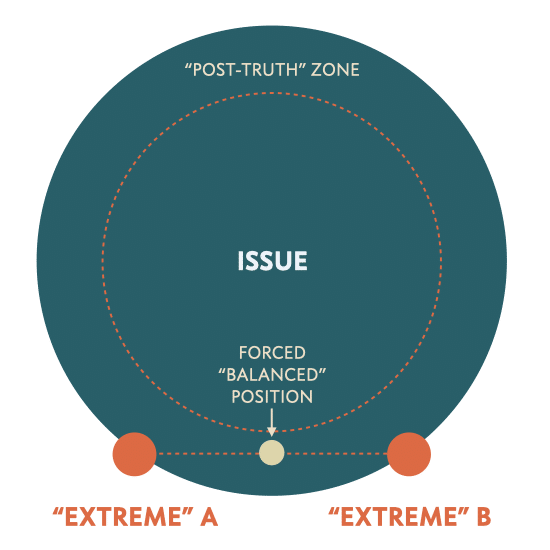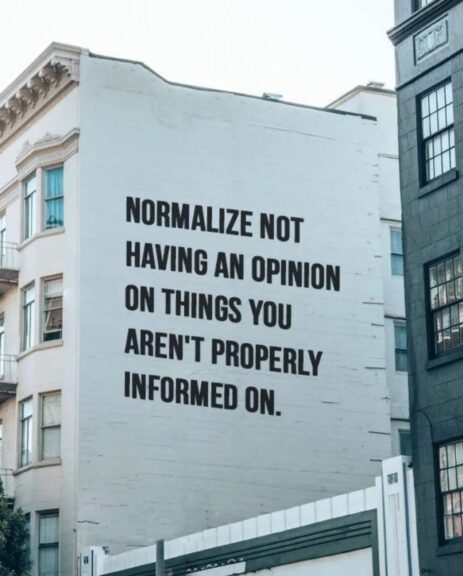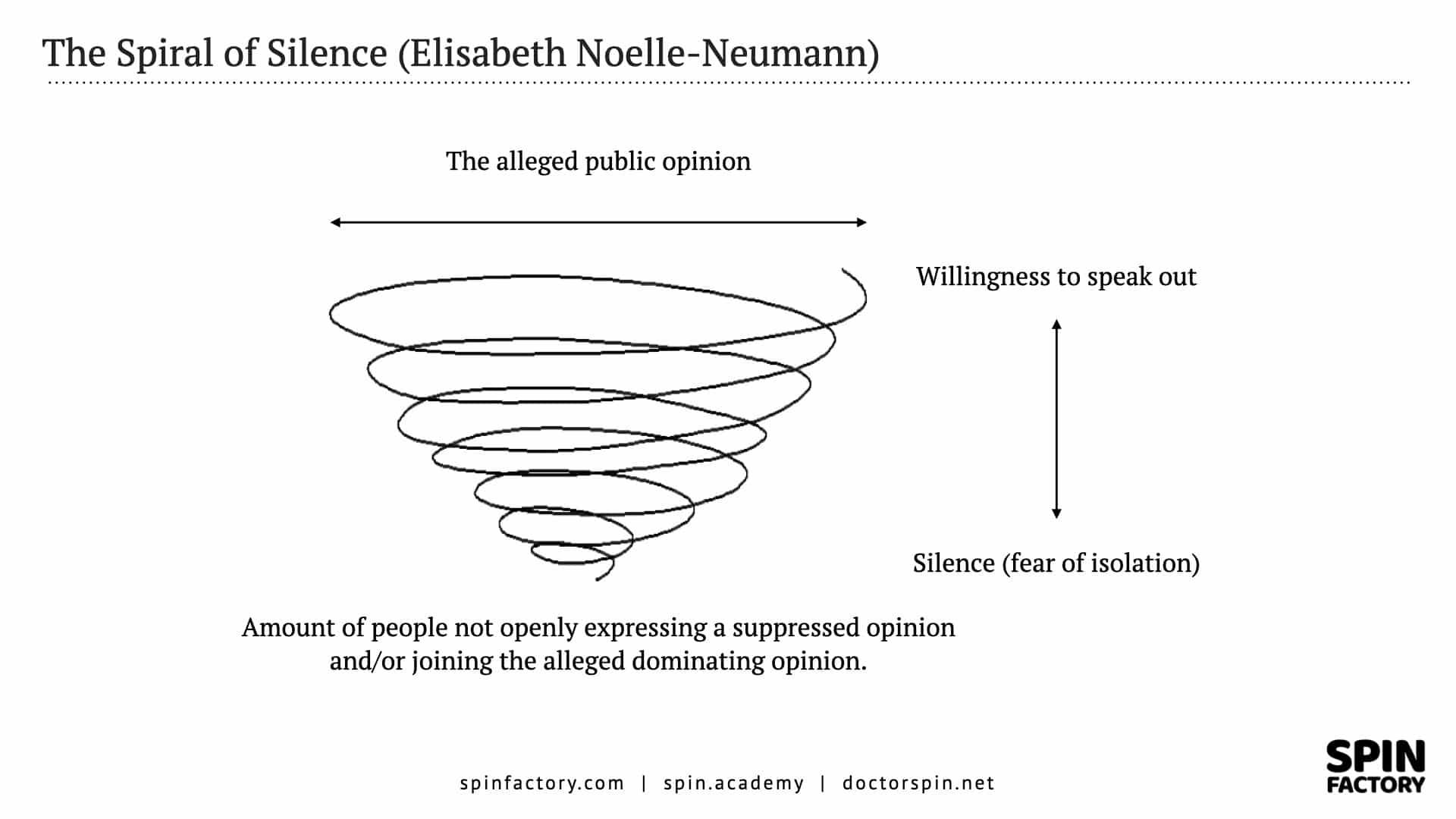How do you fight populism?
Populism is brewing in many Western democracies. According to FT Magazine columnist Gillian Tett, we haven’t reached peak populism yet. 1Tett, G. (2015). Why we still haven’t reached peak populism. Financial Times. https://www.ft.com/content/a665cbb2-9519 – 11e8-b747-fb1e803ee64e
I’m worried; populism gone rogue rarely ends well.
Is there a way to fight back?
Or is it too late?
Here we go:
What is Populism?
Populism is a political ideology and approach that seeks to represent and cater to the interests and concerns of ordinary people, often emphasizing the divide between the “common folk” and the “élite” or “establishment.”
“Populist discourse has become mainstream in Western democracies, and current explanations and reactions to it may strengthen rather than weaken it.”
Source: Government and Opposition 2Mudde, C. (2004). The Populist Zeitgeist. Government and Opposition, 39, 541 — 563. https://doi.org/10.1111/j.1477 – 7053.2004.00135.x
Populism typically arises from a perception that the existing political and social systems are unresponsive or unfair to the needs of the majority. Populist leaders and movements across the political spectrum, from left-wing to right-wing, often employ emotive rhetoric to galvanize public support.
While populism can give a voice to marginalized groups and drive necessary reforms, it can oversimplify complex issues and, in some cases, lead to the erosion of democratic institutions and values.
Populistic supporters often comprise people who used to enjoy a culturally relevant position in society but gradually lost it. Trying to eradicate their claims with opposing arguments could even have adverse effects:
Group psychology mixed with aggression, scapegoating, and fear-mongering can result in a dangerous media logic cocktail.
“Media logic plays a crucial role in social order, influencing surveillance, commercialism, social change, and military strategies.”
Source: Communication Theory 3Altheide, D. (2013). Media Logic, Social Control, and Fear. Communication Theory, 23, 223 – 238. https://doi.org/10.1111/COMT.12017
Media and the Post-Truth Zone
The Media Polarisation Model
We often hear how the media climate is “polarised” — a known and reasonably well-understood effect of classic media logic.
It also seems true that social media logic has amplified the effects of polarisation by grouping people into echo chambers where confirmation bias, conversion theory, and the hostile media effect are allowed to roam freely without any checks and balances.
“Political elites, partisan media, and social media contribute to societal-level political polarization, leading to misperceptions of division among the electorate and fueling animosity and actual ideological polarization over time.”
Source: Current Opinion in Behavioral Sciences 4Wilson, A., Parker, V., & Feinberg, M. (2020). Polarization in the contemporary political and media landscape. Current Opinion in Behavioral Sciences, 34, 223 – 228. … Continue reading
More profoundly, media polarisation is problematic because it draws false lines between extremes that aren’t necessarily perpendicular. These “false lines” will force otherwise balanced media consumers to place themselves between the media-suggested extremes.

At the extremes, sheltered by the social safety of a like-minded peer group (i.e. echo chamber), it’s possible to disregard opposing evidence as “attacks” on their position. As the amplification hypothesis states, any such attacks will only strengthen the position of the extremes.
The harder you attack someone verbally, the more you convince them of their belief, not yours.
The Post-Truth Zone
The amplification hypothesis sustains a post-truth zone at the extremes through media polarisation. If a) the zone is wide enough and b) the extremes are sufficiently close to each other, the forced “balanced” position between them will also result in the post-truth zone.
“Post-truth is a societal phenomenon, influenced by the expectation that honesty is the default position, and the public tolerance of inaccurate and undefended allegations in politics.”
Source: Nature 5Higgins, K. (2016). Post-truth: a guide for the perplexed. Nature, 540, 9 – 9. https://doi.org/10.1038/540009a

Since the forced “balanced” position will have a hard time sheltering anyone from our fear of social isolation, the spiral of silence partially explains why extremes are so effective in silencing the majority of otherwise balanced media consumers. 6Silfwer, J. (2020, June 4). The Spiral of Silence. Doctor Spin | The PR Blog. https://doctorspin.net/spiral-of-silence/
Why Media Polarisation is Disturbing
Like everyone else, I have opinions. However, as a PR professional with 18+ years of experience, I can analyse media issues without siding with any of the extremes.
But no matter how professional my analysis of a current media issue is, I risk blowback from left and right extremes — with no backing from the silent majority.
Many feel compelled by the news media to choose between outlandish extremes — or settle for an equally outlandish middle ground.
Media trends tend to be cyclical, and I estimate that the post-truth era peaked in 2019. My hope, however, is that the pandemic, followed by global inflation and AI progress, will dampen the media’s interest in extreme positions and shrink the width of the post-truth zone.
“Post-truth communication has shaped our understanding of truth, politics, and the media, with its impact on public policy, history, and social media.”
Source: Social Studies of Science 7Sismondo, S. (2017). Post-truth? Social Studies of Science, 47, 3 — 6. https://doi.org/10.1177/0306312717692076
Still, it’s disturbing that the rational business decision for many academics, professionals, and organisations is to strategically steer clear of topics taken “hostage” by left and right extremists — or for organisations to opt for the media blackout tactic.
Normalise Not Having an Opinion
More often than not, in a post-truth society, having no opinion suddenly seems like the only rational escape.

My opinion?
Let’s normalise not having one.
The iron prescription (mental model). Senior advisor Charlie Munger argued: “I have what I call an ‘iron prescription’ that helps me keep sane when I naturally drift toward preferring one ideology over another. I feel that I’m not entitled to have an opinion unless I can state the arguments against my position better than the people who are in opposition. I think that I am qualified to speak only when I’ve reached that state” (Knodell, 2016). 8Knodell, P. A. (2016). All I want to know is where I’m going to die so I’ll never go there: Buffett & Munger – A study in simplicity and uncommon, common sense. PAK Publishing.
Learn more: The Media Polarisation Model
The Amplification Hypothesis
The Amplification Hypothesis
It’s common to find that counterarguments strengthen existing beliefs instead of weakening them.
The harder you attack someone verbally, the more you convince them of their belief, not yours.
The phenomenon is known as the amplification hypothesis, where displaying certainty about an attitude when talking with another person increases and hardens that attitude.
“Across experiments, it is demonstrated that increasing attitude certainty strengthens attitudes (e.g., increases their resistance to persuasion) when attitudes are univalent but weakens attitudes (e.g., decreases their resistance to persuasion) when attitudes are ambivalent. These results are consistent with the amplification hypothesis.“
Source: Journal of Personality and Social Psychology 9Clarkson, J. J., Tormala, Z. L., & Rucker, D. D. (2008). A new look at the consequences of attitude certainty: The amplification hypothesis. Journal of Personality and Social Psychology, … Continue reading
How does the amplification hypothesis work?
In a threatening situation or emergency, we resort to the primal (fastest) part of the brain and survival instincts (fight, flight and freeze). 10Surviving the Storm: Understanding the Nature of Attacks held at Animal Care Expo, 2011 in Orlando, FL.
Establishing common ground and exhibiting empathy demonstrates a genuine understanding of their perspective, fostering trust and openness to your ideas. Conversely, a strategic mismatch of attitudes can serve as a powerful countermeasure if your objective is to deflect persuasive attempts.
Persuade
To persuade, align your attitude with the target. Otherwise, you will only act to create resistance.
Provoke
To put off a persuader, mismatch their attitudes. When they are logical, be emotional, and vice versa.
Learn more: The Amplification Hypothesis: How To Counter Extreme Positions
Gasoline on the Fire: The Conversion Theory
The Conversion Theory
The social psychologist Serge Moscovici found that we become more engaged if we belong to a misrepresented minority.
The disproportional power of minorities is known as the conversion theory. 14Conversion theory of minority influence. (2021, February 12). In Wikipedia. https://en.wikipedia.org/wiki/Conversion_theory_of_minority_influence
“In groups, the minority can have a disproportionate effect, converting many ‘majority’ members to their own cause. This is because many majority group members are not strong believers in its cause. They may be simply going along because it seems easier or that there is no real alternative. They may also have become disillusioned with the group purpose, process, or leadership and are seeking a viable alternative.”
Source: Changingminds.org 15Conversion Theory. (2023). Changingminds.org. https://changingminds.org/explanations/theories/conversion_theory.htm
How does it work?
The social cost of holding a different view than the majority is high. This increased cost explains why minorities often hold their opinions more firmly. It takes determination to go against the norm. 16Moscovici, S. (1980). Toward a theory of conversion behaviour. In L. Berkowitz (Ed.), Advances in Experimental Social Psychology, 13, 209 – 239. New York: Academic Press
In contrast, many majority members don’t hold their opinions so firmly. They might belong to the majority for no other reason than that everyone else seems to be. 17Chryssochoou, X. and Volpato, C. (2004). Social Influence and the Power of Minorities: An Analysis of the Communist Manifesto, Social Justice Research, 17, 4, 357 – 388
According to conversion theory, while majorities often claim normative social influence, minorities strive for ethical high ground.
Conversion Theory Examples
Given the power of normative social influence, minorities typically form tight-knit groups that can gather around a core message.
Most big shifts usually start with a small group of dedicated people:
Minority Influence: A PR Approach
Organisations with CSR aspirations can cultivate a sense of purpose and accomplishment among participants by aligning with a movement that challenges a stupid majority.
Since we tend to favour underdogs, liaising with a carefully selected minority can be a game-changing PR strategy.
Minority spokespersons with solid convictions often possess valuable knowledge and authority, enhancing their persuasive abilities and influence.
Disproportionately, minorities can convert numerous majority members to their cause, as many in the majority may have merely followed the path of least resistance, made decisions without much consideration, or lacked viable alternatives.
Additionally, a significant segment of the majority might be disillusioned with their group’s purpose, process, or leadership, rendering them more receptive to alternative proposals.
Proceed With Caution, Please
As PR professionals, we must be cautious when implementing the conversion theory.
Minorities aren’t always right, and majorities aren’t always wrong. Minorities can hold futile views while still exercising a disproportionate amount of power.
Learn more: Conversion Theory: The Disproportionate Influence of Minorities
Fear, Social Media, and Cancel Culture
Social networks, which employ social media algorithms utilising iterative testing to boost audience engagement, have recently been scrutinised for allegedly promoting content that heightens aggression.
Critics argue that these algorithms, designed to keep users engaged and active on the platforms, inadvertently prioritise messages that provoke strong emotional responses, often inciting anger or hostility.
This phenomenon raises questions about the role and responsibility of social media companies in shaping public discourse and the potential consequences of an increasingly polarized online environment for society at large. Populism plays right into media logic using social control and fear.
As such, the amplification hypothesis, fueled by conversion theory and social media algorithms, is a strong argument against cancel culture:
In short, we can never fight populism by fighting populists.
The only way is to remove that which fuels their anger.
Fear: Cause and Effect
Politicians with a populistic agenda are often blamed for inciting societal fear and anger. Still, fear and anger were already present in the population; otherwise, it wouldn’t have been susceptible to populist propaganda in the first place.
Misplaced pride and frustration within a population is a fertile breeding ground for anyone willing to stand against the élite. Such actions will grant even one individual enough power to radically shift an entire political narrative.
Populist supporters will readily invest their energies in their champions to do as they please — if nothing else, to “stick it” to the establishment.
Here’s why:
Populism is not about making people angry. It’s about making people angrier. At their core, populists are angry about something and blame others for their loss of significance. 18See also Pew Research Institute’s 2018 report on populism.
How To Stand Up To Populism
To mitigate the rise of populism, we must address the concerns of those who feel marginalized or dispossessed by social reform, ensuring that they continue to perceive themselves as culturally relevant:
Progressive politicians must take extra caution in times of social change. Groups that have enjoyed influence never take kindly to losing power and significance.

THANKS FOR READING.
Need PR help? Hire me here.

PR Resource: Cancel Culture
How To Navigate Cancel Culture
“Cancel culture or call-out culture is a phrase contemporary to the late 2010s and early 2020s used to refer to a form of ostracism in which someone is thrust out of social or professional circles — whether it be online, on social media, or in person. Those subject to this ostracism are said to have been ‘cancelled’.”
Source: Wikipedia 19Cancel culture. (2023, January 4). In Wikipedia. https://en.wikipedia.org/wiki/Cancel_culture
The culture war with de-platforming, cancel culture, online lynch mobs, woke journalism, populism, fake news, and moral slacktivism are fast becoming our biggest challenges as PR professionals.
“Cancel culture on social media is a form of public shaming that aims to diffuse public discourse and promote tolerance, but can also be viewed as a form of intolerance against opposing views.”
Source: Rupkatha Journal on Interdisciplinary Studies in Humanities 20Velasco, J. (2020). You are Cancelled: Virtual Collective Consciousness and the Emergence of Cancel Culture as Ideological Purging. Rupkatha Journal on Interdisciplinary Studies in Humanities, 12. … Continue reading
Focus On What Truly Matters
Here’s how to navigate cancel culture as an organisation:
Learn more: Cancel Culture is Evil
PR Resource: Spiral of Silence
The Spiral of Silence Theory
Elisabeth Noelle-Neumann’s (1916 – 2010) well-documented theory on the spiral of silence (1974) explains why the fear of isolation due to peer exclusion will pressure publics to silence their opinions.

The theory was developed in the late 1970s in West Germany, partly in response to Noelle-Neumann’s observations of how public opinion seemed to shift during the Nazi régime and post-war Germany.
The spiral of silence theory is based on the idea that people fear social isolation. This fear influences their willingness to express their opinions, especially if they believe these opinions are in the minority.
Rather than risking social isolation, many choose silence over expressing their opinions.
As the dominant coalition stands unopposed, they push the confines of what’s acceptable down a narrower and narrower funnel, the so-called opinion corridor). 21Opinion corridor. (2023, April 8). In Wikipedia. https://en.wikipedia.org/wiki/Opinion_corridor
Noelle-Neumann emphasised the media’s role in shaping public perception of what opinions are dominant or popular, thus influencing the spiral of silence.
Populism and Cancel Culture
The mechanisms behind Elisabeth Noelle Neumann’s spiral of silence theory could fuel destructive societal phenomena like populism and cancel culture:
In both cases, the spiral of silence contributes to a polarised environment. Views become dominant not necessarily because they are more popular but because opposing views are not expressed due to fear of social isolation or repercussions.
Learn more: The Spiral of Silence
Annotations
| 1 | Tett, G. (2015). Why we still haven’t reached peak populism. Financial Times. https://www.ft.com/content/a665cbb2-9519 – 11e8-b747-fb1e803ee64e |
|---|---|
| 2 | Mudde, C. (2004). The Populist Zeitgeist. Government and Opposition, 39, 541 — 563. https://doi.org/10.1111/j.1477 – 7053.2004.00135.x |
| 3 | Altheide, D. (2013). Media Logic, Social Control, and Fear. Communication Theory, 23, 223 – 238. https://doi.org/10.1111/COMT.12017 |
| 4 | Wilson, A., Parker, V., & Feinberg, M. (2020). Polarization in the contemporary political and media landscape. Current Opinion in Behavioral Sciences, 34, 223 – 228. https://doi.org/10.31234/osf.io/yqvzc |
| 5 | Higgins, K. (2016). Post-truth: a guide for the perplexed. Nature, 540, 9 – 9. https://doi.org/10.1038/540009a |
| 6 | Silfwer, J. (2020, June 4). The Spiral of Silence. Doctor Spin | The PR Blog. https://doctorspin.net/spiral-of-silence/ |
| 7 | Sismondo, S. (2017). Post-truth? Social Studies of Science, 47, 3 — 6. https://doi.org/10.1177/0306312717692076 |
| 8 | Knodell, P. A. (2016). All I want to know is where I’m going to die so I’ll never go there: Buffett & Munger – A study in simplicity and uncommon, common sense. PAK Publishing. |
| 9 | Clarkson, J. J., Tormala, Z. L., & Rucker, D. D. (2008). A new look at the consequences of attitude certainty: The amplification hypothesis. Journal of Personality and Social Psychology, 95(4), 810 – 825. https://doi.org/10.1037/a0013192 |
| 10 | Surviving the Storm: Understanding the Nature of Attacks held at Animal Care Expo, 2011 in Orlando, FL. |
| 11 | Silfwer, J. (2017, June 13). Conversion Theory — Disproportionate Minority Influence. Doctor Spin | The PR Blog. https://doctorspin.net/conversion-theory/ |
| 12 | Beck (1999): Homogenization, Dehumanization and Demonization. |
| 13 | Cognitive dissonance. (2023, November 20). In Wikipedia. https://en.wikipedia.org/wiki/Cognitive_dissonance |
| 14 | Conversion theory of minority influence. (2021, February 12). In Wikipedia. https://en.wikipedia.org/wiki/Conversion_theory_of_minority_influence |
| 15 | Conversion Theory. (2023). Changingminds.org. https://changingminds.org/explanations/theories/conversion_theory.htm |
| 16 | Moscovici, S. (1980). Toward a theory of conversion behaviour. In L. Berkowitz (Ed.), Advances in Experimental Social Psychology, 13, 209 – 239. New York: Academic Press |
| 17 | Chryssochoou, X. and Volpato, C. (2004). Social Influence and the Power of Minorities: An Analysis of the Communist Manifesto, Social Justice Research, 17, 4, 357 – 388 |
| 18 | See also Pew Research Institute’s 2018 report on populism. |
| 19 | Cancel culture. (2023, January 4). In Wikipedia. https://en.wikipedia.org/wiki/Cancel_culture |
| 20 | Velasco, J. (2020). You are Cancelled: Virtual Collective Consciousness and the Emergence of Cancel Culture as Ideological Purging. Rupkatha Journal on Interdisciplinary Studies in Humanities, 12. https://doi.org/10.21659/rupkatha.v12n5.rioc1s21n2 |
| 21 | Opinion corridor. (2023, April 8). In Wikipedia. https://en.wikipedia.org/wiki/Opinion_corridor |
| 22 | Silfwer, J. (2018, August 6). How To Fight Populism. Doctor Spin | The PR Blog. https://doctorspin.net/how-to-fight-populism/ |
| 23 | Silfwer, J. (2020, August 24). Cancel Culture is Evil. Doctor Spin | The PR Blog. https://doctorspin.net/cancel-culture/ |



